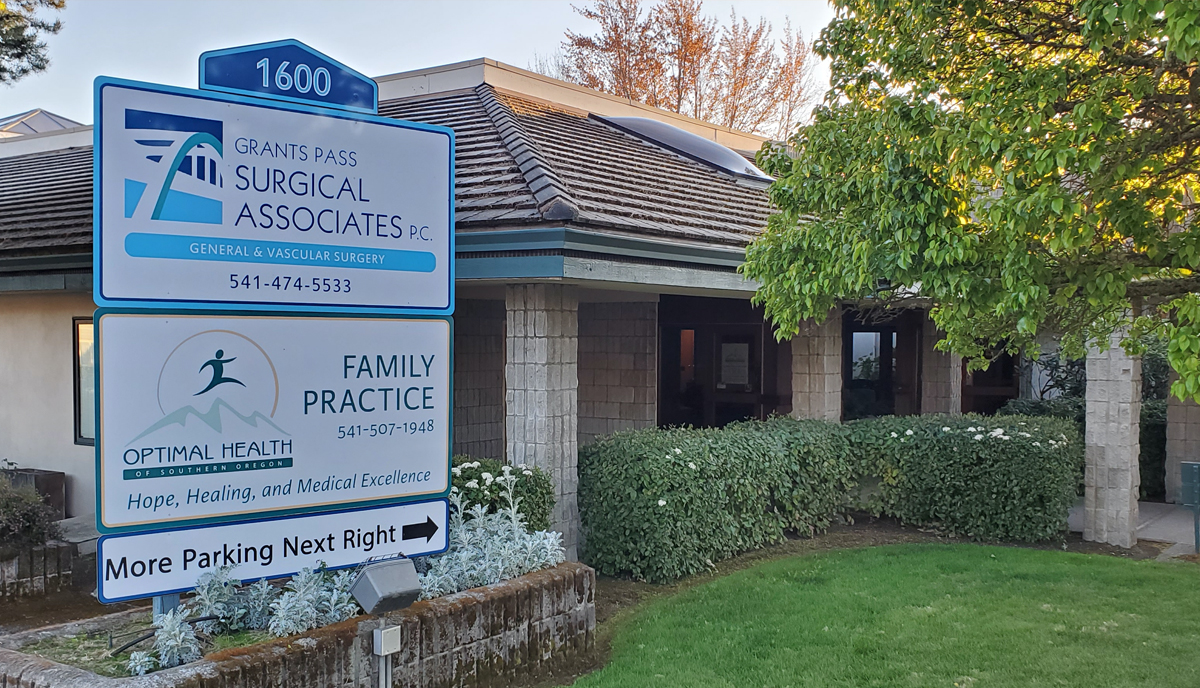Before we get into today’s blog, I want to say a special thank you to all the doctors out there who are fighting this pandemic. You are going to work every day worrying about getting sick or infecting your family. Yet you go to work just the same. Thank you for what you do.
The pandemic caused shutdown of our nation has created a massive hit to the medical community, especially those private practitioners who rely on elective procedures and outpatient care for the bulk of their billing. It’s been six years since I retired from my surgical practice in Grants Pass, Oregon, and I was wondering how they were affected by the crisis. I placed a call to my old partner, Dr. Mark Deatherage, to check on their status.
We discussed the changes in their practice from both the financial and the logistics standpoints. It is certainly not the practice I left in 2013. So much has changed just in the last few weeks. This is a private, single specialty general/vascular surgical group with three surgeons: One out of training less than two years, one in mid-life, and one nearing retirement. Here are the nine things I learned about their new normal.
1: Elective surgery is gone
The bulk of the income in the practice comes from elective surgical procedures. With these indefinitely on hold by order of the Governor to slow the pandemic and preserve personal protective equipment, the practice’s income has plummeted. Emergency cases and telemedicine are still being performed so some billing is still happening. Even during a pandemic, people will get appendicitis and have traumatic injuries. With income down significantly, changes in expenses must be made to accommodate.
2: They are still paying their employees
The decision was made to keep all employees on at their current salaries even with reduced patient flow. The group is in the process of applying for a Paycheck Protection Program (PPP) loan backed by the Small Business Administration (SBA). This should help keep the doors open and the staff paid until their elective business returns.
This loan will be forgiven in businesses that either keep or rehire their employees when the economy reopens. The loan requires no collateral, has no fees, is charging 1% interest, and will mature in two years. It is not clear how long the process will take to complete and actually have the loan money in hand, but they are doing everything they can to continue to pay the staff in good faith that the loan will come through as advertised.
3: The surgeons are taking pay cuts
You can’t keep paying salaries when billing is greatly curtailed, so something has to give. The biggest area they are cutting back on is the surgeon’s salaries. The senior surgeon who is nearing retirement is able to take no salary for a while and divert his income to other bills. The others are taking upwards of an 80% pay cut for the next few months.
This makes a great example of why a personal emergency fund is crucial as the doctors face an unknown period of massive pay cuts. This is a tough time for fresh new doctors with student loans who might not have a big emergency fund built up yet.
This pay cut poses a dilemma with the newest surgeon who is not a partner yet, and still working under a contract with a guaranteed salary. Fortunately, any contract can be altered if both parties agree to the changes. The future partner understands the issue and is being flexible with the contract. She will get her guaranteed pay in the future, when things pick up again.
4: Their saving grace
Although for now, there is still some accounts receivable coming in due to the lag time between billing and collections. Fortunately, one of the surgeons who is near retirement and can do without an income is willing to forgo his paycheck for awhile. That is like having an extra emergency fund for the practice. The money that would have been paid to the senior surgeon can be easily diverted to the rest of the bills during this crisis. His pay will be caught up later.
5: Stopped paying rent
With the loss of revenue, the ability to pay their rent has diminished. The practice has contacted the building owners (a group of current and former surgical business partners) to inform them of the situation. For a short time, all rent payments will stop. The Governor has ordered businesses in the state who have lost income due to the pandemic to not be penalized for delayed payment of rent during the crisis. The owners are sympathetic to the problem.
6: Converted to telehealth
Since the office is practicing social distancing and is unable to perform elective procedures at this time, they have begun doing patient visits via the internet. This works very well for post op checks and setting up future elective procedures. Some surgical patients do still need to be seen in person though.
If a patient needs a hernia repair, for example, the doctor can discuss as well as see the problem via the telehealth system. The office staff can then complete all the paperwork and pre authorizations for their upcoming surgery. Once elective cases are given the green light again, these cases are all teed up and ready to go.
7: Recycled PPE
Something that has never been done before is recycling gowns and masks. With the personal protective equipment (PPE) shortage, they are getting creative by sterilizing and reusing unsoiled masks and gowns.
The Governor has asked for all elective office cases that use sterile PPE to be postponed to save the equipment for the hospitals. Reuse is one way many doctors have gotten creative in this era of limited supplies. PPE is still occasionally needed and recycling is helping combat the national shortage.
8: Urgent surgeries take longer now
Currently, every patient coming into the hospital is being treated as if they have COVID-19 and are contagious. So proper procedure in the operating room has changed to accommodate the potentially contagious patients which creates additional steps. Now, if a patient needs an appendectomy, they are intubated in a special negative pressure room with the anesthesiologist in essentially a hazmat suit.
Then the patient is wheeled into the operating room and both rooms will sit idle for 22 minutes while the air in each room is completely cycled out to fresh air. Then the rest of the operating team comes in to do the case.
After the surgery is complete the patient is returned to the negative pressure room for extubation and then they are taken to the recovery room. What once was a 30 minute procedure has turned into a 90 minute procedure. Since the hospital doesn’t have any elective cases, there is plenty of time to complete the time consuming added safety measures.
9: The Future
I asked Dr. Deatherage what he thinks the near future might hold as I suspect we will come out of this with a new normal. He had two thoughts in this regard.
First, when elective surgery gets the green light again, there will be a big backlog of cases all teed up and ready to go. The number of patients needing surgery has not diminished during the crisis, they have merely been postponed. When the time comes to ramp back up, they will need to tackle the normal pathology that is occurring, plus the backlog of cases that have been postponed. Since the new process of doing these cases will be slower than before, it will likely be difficult to catch up.
Second, the hospitals will be out of money. For the last few years, hospitals have enjoyed a very lucrative business. The electronic medical record system was specifically designed to capture more billable items and has boosted hospital profits. The new protocols are more expensive and will cut heavily into their profit margin. Any emergency funds they had before the crisis will have been exhausted.
Hospitals also make the bulk of their money doing elective procedures, thus their source of income has also dropped. With hospitals out of money and experiencing a higher cost of doing business, it will likely translate into lower pay for hospital employed physicians.
New surgeons in small towns have been very well paid recently, better in fact than I ever earned during my career. Future recruits will not get the same offers. Who knows what salaries will fall to next year as we enter a new normal for the economics of hospital patient care. Over the last few years, more and more doctors have become employees of hospital systems so this salary cut will be far reaching.
What have you been doing to compensate for the current changes during the pandemic? Do you have any good ideas to share?









